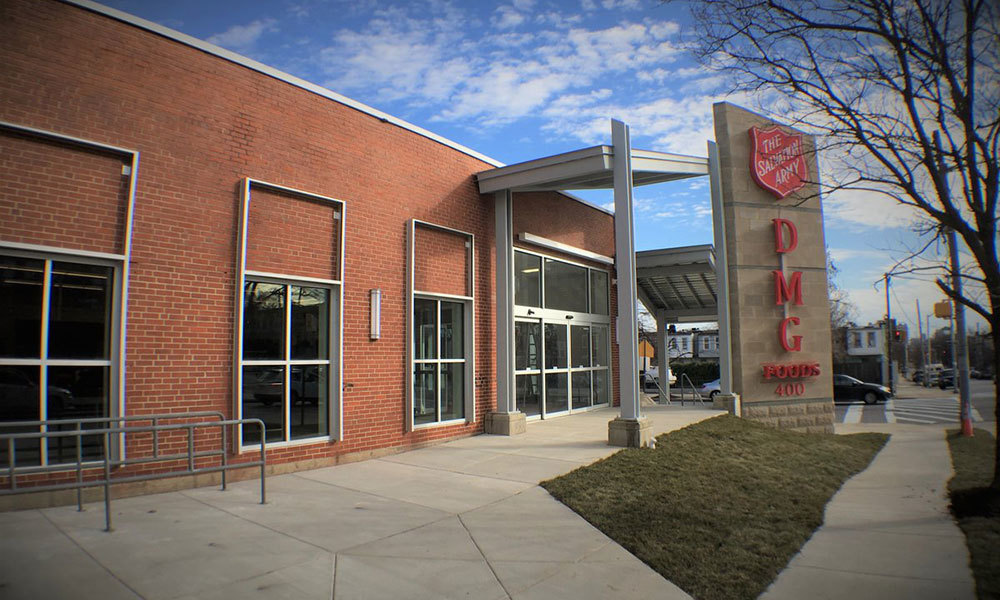
Salvation Army Brings Charity Experience to Nonprofit Grocery Store
A local chapter of the international charity that serves Baltimore recently launched a grocery store in one of the city’s food deserts. The nonprofit endeavor aims to add elements of social service to the shopping experience.
Among other things, the Salvation Army is famous for raising money outside of grocery stores.
But for its latest endeavor, the long-running charitable organization owns the grocery store.
This month, the organization announced that it would open nonprofit grocery stores in “food deserts,” areas in the country where the public is underserved by traditional for-profit supermarkets.
The first location for DMG (Do More Good) Foods is in Baltimore, and it opened March 7. The 7,000-square-foot store is expected to offer access to high-quality foods for more than 1,200 families in the city, as well as 15 jobs. The store will have lower prices than for-profit chains and will offer discounts to families that use the federal Supplemental Nutrition Assistance Program (SNAP). It is also targeted toward locals who do not own cars and was positioned across the street from an elementary school so it would be convenient for families to shop at.
In addition, the store has a butcher and deli counter.
But while food is a key part of the overall mission, the store aims to add elements of social service to the grocery experience, including offering members of the community guidance on nutrition, workforce development, and ideas for meal planning.
In comments to Mic, Salvation Army area commander Maj. Gene Hogg, who leads the central Maryland chapter of the nonprofit, said that the idea for the store was inspired by the 2015 protests in Baltimore over the death of Freddie Gray while in police custody. The protests and looting cut many residents off from access to local convenience stores. While the Salvation Army was able to assist local residents with food baskets, the nonprofit saw an opportunity to do more.
“This outreach made us question if people within the community had access to sufficient resources and how we could further support them. … We chose to open a grocery store, because we felt it was important that city residents had a broader food selection and more buying power,” Hogg said.
Baltimore Mayor Catherine Pugh praised the effort by the nonprofit and saw an opportunity to further improve the city as a whole.
“This serves as a beacon for the rest of this community. If we can do this here, we can do this in other parts of the city,” she told WMAR-TV.
(via the Salvation Army's Twitter page)






Comments